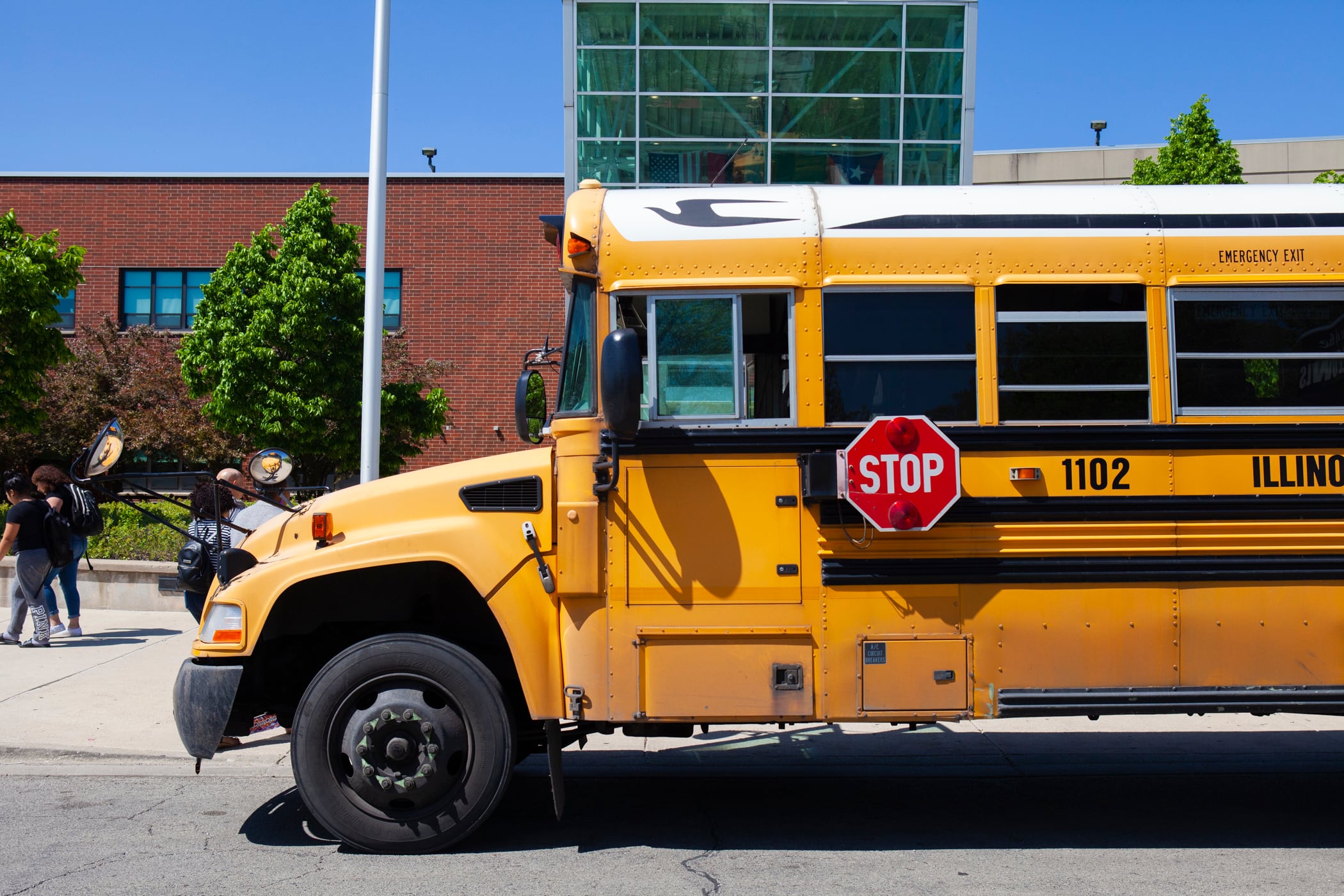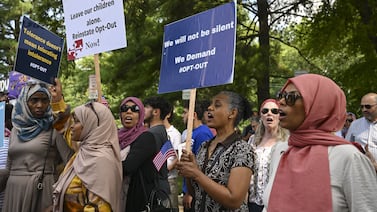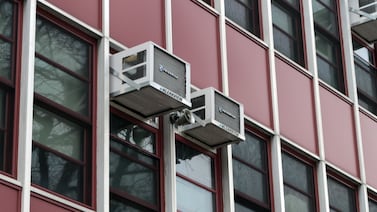More than 8,000 Chicago Public Schools students will not have bus service on the first day of class on Aug. 21, a problem the district blames on an ongoing bus driver shortage.
With only half of the 1,300 drivers needed to transport students who require bus service, Chicago said it will instead prioritize transportation for students with disabilities and those experiencing homelessness. Both groups are legally required to receive transportation to school.
For some students with disabilities, bus service is a requirement on their Individualized Education Programs. More than 7,100 such students have signed up for bus service so far, officials said. (Siblings of students with disabilities can still receive bus service if they attend the same school.)
This is the third year in a row in which the return to class has been marred by transportation woes that have left thousands of students without transportation or with long commutes. The district, which contracts with outside companies to provide transportation, has attributed bus service snarls in previous years to nationwide driver shortages.
In an effort to help fix ongoing transportation problems, the district in March approved a $4 million contract with Education Logistics Inc., known as EduLog, to schedule bus routes, determine start times for summer school and assign bus vendors during the school year. The contract is set to run through June 30, 2026.
This year, in the face of continued bus service troubles, the district will instead offer Ventra cards to general education students and one companion, such as a parent, “for as long as they are without school bus transportation,” according to a news release from Chicago. These families may have the option to get bus service “at some point” in the school year but the timing for that is not yet clear, said Charles Mayfield, chief operating officer for Chicago Public Schools.
Last year, Chicago provided bus service to 17,275 children, or about 5% of students.
“There’s been a nationwide shortage, and I think that is not an easy thing for any K-12 [district] right now,” Mayfield said Monday in an interview with Chalkbeat. “Even if you Google search bus driver shortage, you get a number of school districts that have the same issue that we’re having today and they are making adjustments similar to where we are, to try to provide alternatives.”
As of Friday, the district said it could guarantee bus service on the first day of school for students with disabilities and those experiencing homelessness, after Chicago twice extended a sign-up deadline this summer, Mayfield said. But it can’t guarantee immediate service for families who sign up now. The district is required to link those families to bus service within two weeks of their request for transportation.
As an alternative, CPS is offering families of students with disabilities and those in temporary housing up to $500 in monthly stipends to cover transportation costs. So far, 3,000 students have chosen this option, officials said.
The continuing transportation issues have Chicago parent Laurie Viets bracing for yet another chaotic start to the school year. Two of her three children have district-provided bus service written into their Individualized Education Programs.
This year, she said the district has been more proactive since parents have raised concerns about bus services issues over the past few years. Over the summer, Viets received a couple of phone calls from the district asking if she would like to take the $500 stipend, but she declined. She said she prefers that the district provide bus service for her children.
Viets only learned the district had yet to figure out routes for students when she talked to a district representative last week.
“I have no hopes at all that transportation will show up,” said Viets. “I’ve got three kids, three separate schools in three different parts of the city. We’re going to be scrambling to get the two that need transportation to school because I guarantee we will not have transport on that first day.”
It is a familiar scenario for Viets – last year, she said she couldn’t get transportation for one of her children for about six weeks – and for thousands of other CPS families.
In the 2021-22 school year, when students returned to classrooms after COVID shuttered buildings, the district did not have bus services for 2,100 students on the first day of classes. At the time, the district provided families with $1,000 to help with transportation and even reached out to ride-sharing companies Uber and Lyft for support.
At the start of the next school year, the district was able to route 15,000 Chicago Public Schools students to classes but hundreds of students with disabilities dealt with long commute times. At the time, the district reported that 365 students with disabilities had to deal with commute times of 90 minutes or longer and could not arrange transportation for 1,200 students.
Reema Amin is a reporter covering Chicago Public Schools. Contact Reema at ramin@chalkbeat.org.
Samantha Smylie is the state education reporter for Chalkbeat Chicago, covering school districts across the state, legislation, special education, and the state board of education. Contact Samantha at ssmylie@chalkbeat.org.





